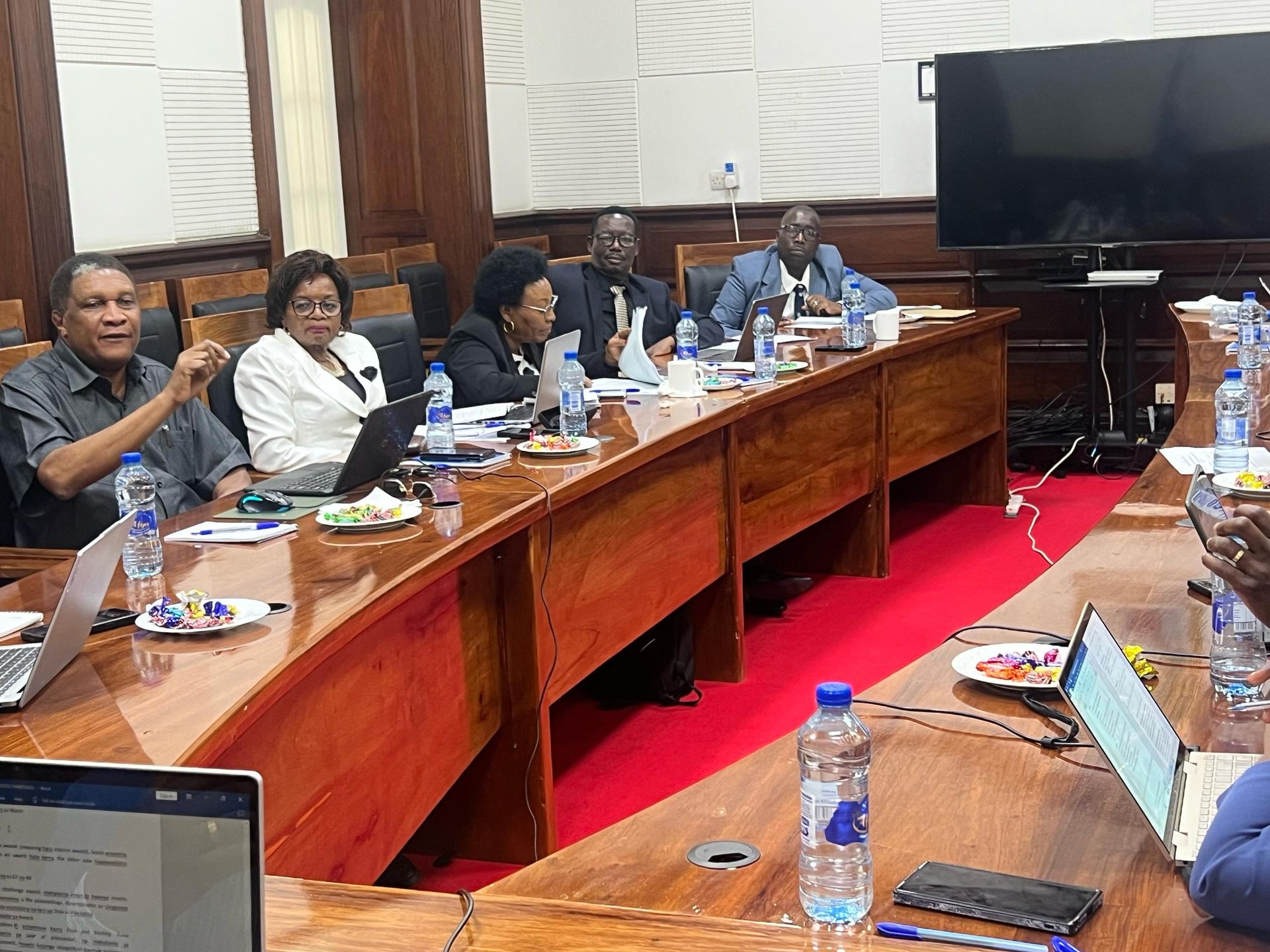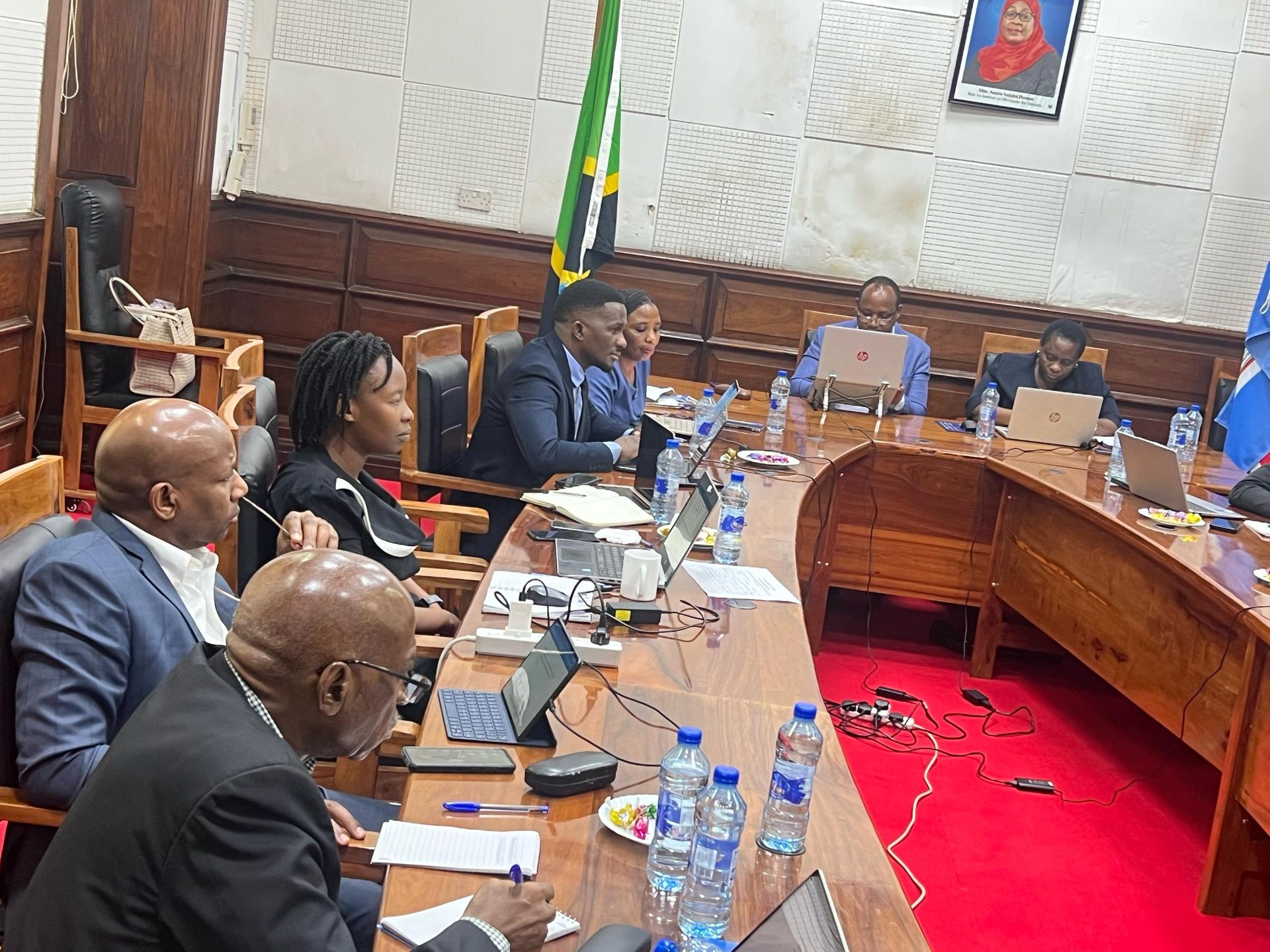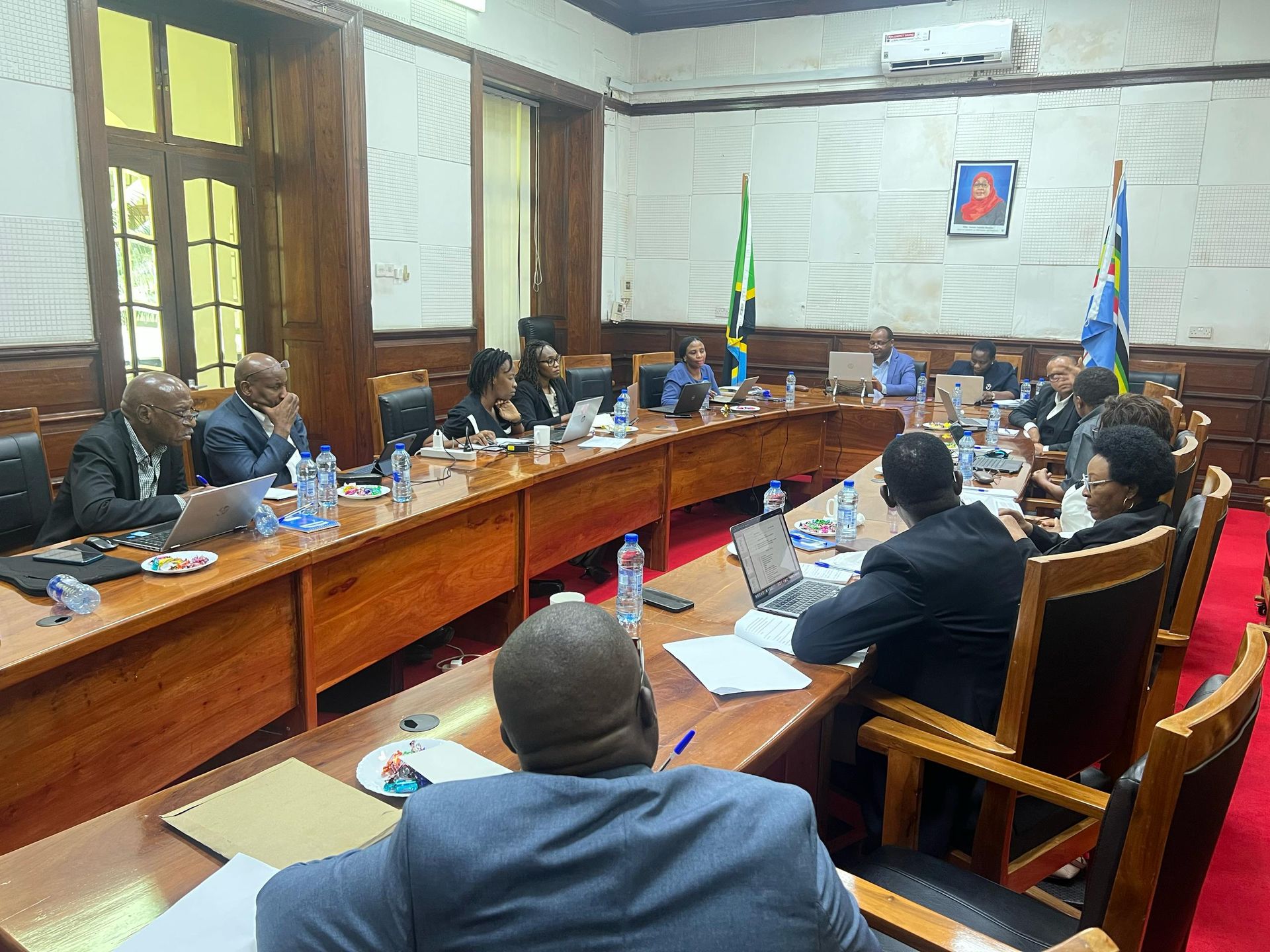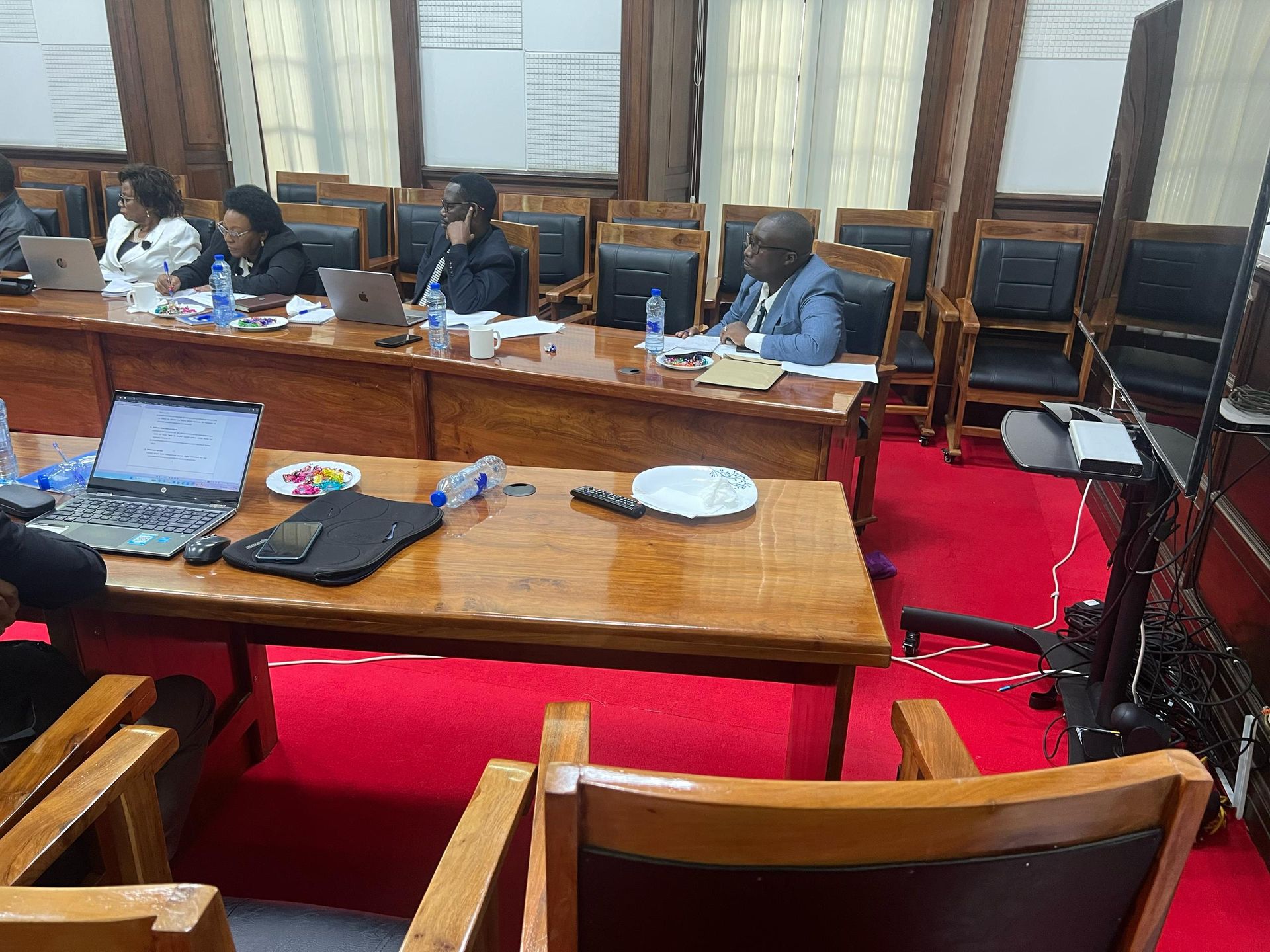ESS's Role in the Review of the Arbitration Act
On March 19, 2025, the Executive Director of ESS Creative and Legal Foundation, Erick Mukiza, was invited to contribute to the Review of the Arbitration Act Chapter 15, Revised Edition 2020. The review was organized by the Law Reform Commission of Tanzania and the Tanzania International Arbitration Centre (TIAC).
Erick Mukiza’s contributions were based on collective insights and recommendations gathered through engagement with key stakeholders, particularly the High Court Mediation Center, under the leadership of Hon. Judge Zahra Maruma.
Participants in the Review Session
The working session brought together key stakeholders from diverse legal and dispute resolution institutions, including:
- Law Reform Commission of Tanzania
- Ministry of Constitutional and Legal Affairs
- Tanganyika Law Society
- Tanzania International Arbitration Centre
- Tanzania Institute of Arbitrators
- Private Arbitrators
- Private Mediators
- ESS Creative & Legal Foundation
- Hon. Robert V. Makaramba, retired Judge of the Tanzania High Court
Key Contributions from ESS Creative & Legal Foundation
During the review session, Erick Mukiza emphasized several crucial areas to enhance inclusivity in arbitration:
Legal Recognition of Sign Language
One of the key recommendations was ensuring that sign language interpretation is legally mandated in arbitration proceedings. This step would allow individuals who are deaf or hard of hearing to fully participate in the dispute resolution process.
Training for Arbitrators and Mediators
ESS recommended the development of training programs to equip legal professionals with the necessary skills to handle cases involving persons with disabilities. Specialized training ensures fair and equitable treatment in arbitration and mediation processes.
Accessible Arbitration Facilities
Technology can play a crucial role in improving accessibility. Erick Mukiza advocated for the use of captioning, virtual hearings, and other assistive technologies to create an inclusive arbitration environment.
Ensuring Procedural Fairness in ADR
It was recommended that the law explicitly state that the refusal to provide reasonable accommodations in Alternative Dispute Resolution (ADR) constitutes procedural unfairness. This legal safeguard would help protect the rights of persons with disabilities in arbitration and mediation.
Recommendations from the High Court Mediation Center
In addition to ESS’s direct contributions, the High Court Mediation Center, under Hon. Judge Maruma, provided the following recommendations:
Accessibility of Arbitrators for the Public and by Order of the Court
To improve access to arbitration, there should be a clear mechanism to ensure that arbitrators are accessible to individuals and businesses. Additionally, arbitrators should be formally assigned through court orders when necessary, with a well-defined selection process for cases referred from courts.
Transparency on Arbitrators’ Performance and Expertise
There is a need for greater transparency regarding arbitrators’ qualifications, experience, and past performance. Establishing a publicly available database where parties can assess an arbitrator’s expertise before appointment would help ensure informed decision-making.
Creation of a Data Hub for Arbitration
A centralized system should be established to store arbitration-related information, including cases, arbitrators, rulings, and best practices. This would enable stakeholders to track trends, improve decision-making, and promote consistency in arbitration proceedings.
Strengthening the Structure of the Arbitration Center
A well-defined institutional framework for the Arbitration Center is essential for operational efficiency. The review emphasized the need for clear governance, procedures, and dispute resolution mechanisms to enhance the effectiveness of arbitration services.
Developing a Communication Strategy for Arbitration
An effective communication strategy is needed to raise awareness about arbitration. This involves public engagement, education campaigns, and clear guidelines on how arbitration works. Improved communication would increase public trust and encourage the use of arbitration as an alternative dispute resolution mechanism.
Capacity Building of Arbitrators for Quality Assurance
Continuous training and professional development programs for arbitrators are necessary to maintain high standards in arbitration proceedings. This includes workshops, certification programs, and ongoing education to enhance arbitrators’ skills and expertise.
Conclusion
The participation of ESS Creative and Legal Foundation in the review of the Arbitration Act signifies a commitment to making dispute resolution more inclusive and accessible. Through the integration of legal protections for persons with disabilities, enhanced transparency, and better arbitrator training, arbitration in Tanzania can become a more effective and equitable system. ESS remains dedicated to working with stakeholders to implement these recommendations and advance the cause of inclusive Alternative Dispute Resolution (ADR).



